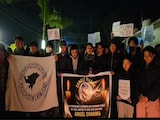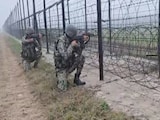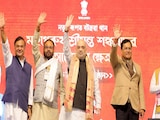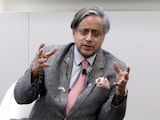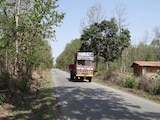A complete shutdown is being observed in Ladakh to press for the demand of statehood for the region that was carved out as a separate union territory in August 2019.
In the Leh and Kargil districts, roads wear a deserted look. All commercial and business activities have come to a standstill in Leh. The bandh call has been given by a Leh-based apex body, which represents various social, religious and political groups in Leh, and the Kargil Democratic Alliance (KDA). Both groups have formed an alliance and threatened an agitation in support of their demand for statehood. They also demand constitutional safeguards on the lines of the 6th schedule; separate parliament seats for Leh and Kargil districts and recruitment for 12,000 posts in Ladakh.
Ironically, when Jammu and Kashmir was stripped of its statehood and downgraded into two union territories, there were celebrations in Leh. The Ladakh Buddhist Association, which was part of the celebrations then, is now a part of the political alliance demanding statehood and constitutional guarantees for job and land rights exclusively for the people of Ladakh.
Initially, the BJP unit of Ladakh was a part of the alliance but later pulled out of it as the party came under criticism for "doublespeak".
This is also the first time when the leadership in Muslim-majority Kargil and Buddhist-dominated Leh have joined hands for their political future.
The move is a major challenge for the central government amid a protracted military standoff along the Line of Actual Control in Ladakh. The centre and the BJP have touted carving out Ladakh as a separate union territory a historic move that will bring development and end decades of discrimination.
However, in just two years, people in Leh and Kargil feel politically dispossessed and have jointly risen against the centre and what they call a bureaucratic rule in the union territory.
After the formation of the alliance, Thupstan Chewang, chief of the Leh apex body, has said that the entire Ladakh stands united in their demand for statehood and constitutional safeguards like it had enjoyed under the provisions of special status where no outsider could own land and given jobs in Ladakh.
After the abrogation of Jammu and Kashmir's special status, the Centre promised to restore statehood at an "appropriate time". Recently, Union Home Minister Amit Shah had said that statehood will be restored only after assembly elections are held in the union territory. So far, there is no indication when assembly elections will be held.
The Delimitation Commission constituted in March 2020 to demarcate assembly seats has not submitted its report so far. The process of assembly elections may be initiated only after the assembly seats are demarcated.
Except for BJP, all the political parties have been demanding restoration of statehood before elections. The regional parties that have challenged the Centre's decision in the Supreme Court have been demanding restoration of special status which they say was the only constitutional link between the erstwhile state and the union of India.
However, even before the Centre takes a call on the restoration of statehood for Jammu and Kashmir, Ladakh is emerging as a new political challenge for the BJP government.
